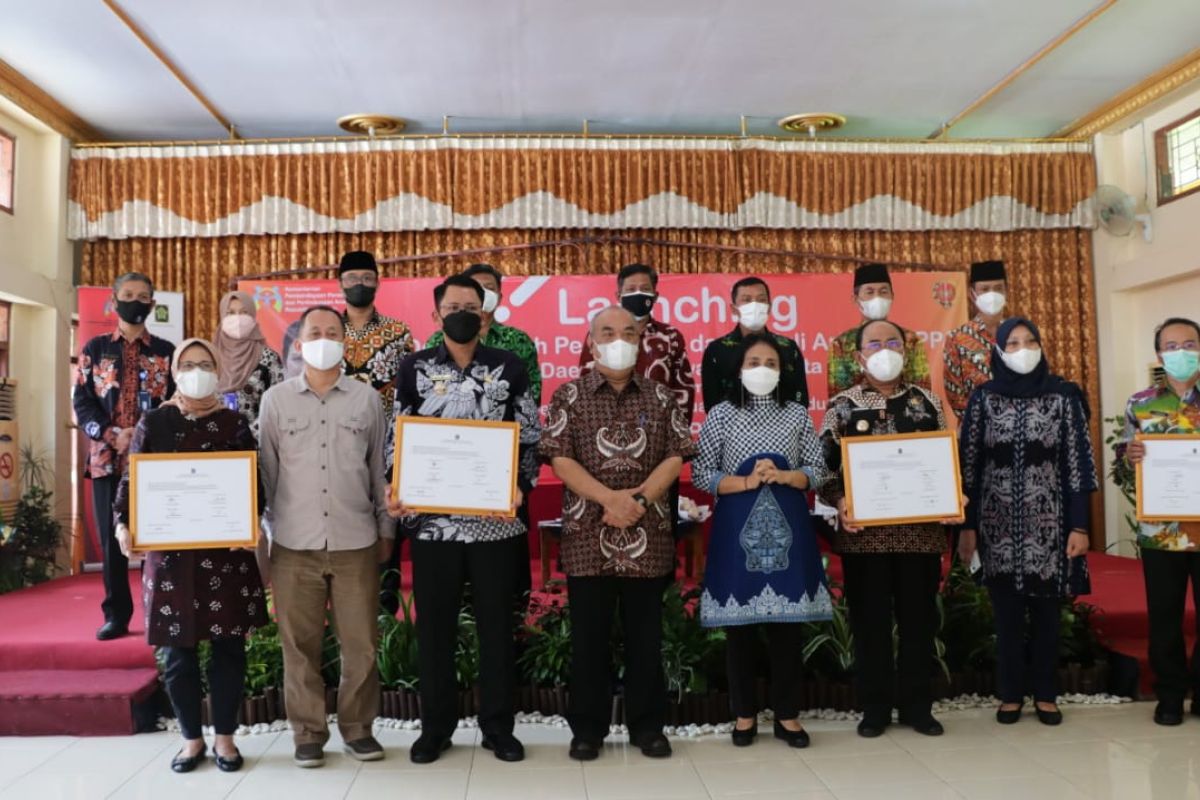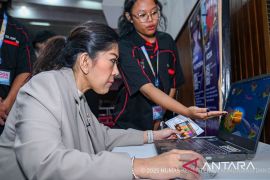Darmawati stated in Kulon Progo on Friday that villages should integrate gender- and child-friendly perspectives in every governance and development, and the development in question must be conducted in a calculated and sustainable manner.
"There are 10 indicators to realize a women-friendly and child-caring village (DRPPA), but it is not only the responsibility of the village but synergy and collaboration should also be built along with community and religious leaders as well as volunteers," the minister remarked.
Among the 10 indicators that should be met to create such village are the organization of women and children in the village and availability of village data containing information on women and children.
In addition, a village regulation on women-friendly and child-caring village should be put into place as well as budget allocation from village finances and utilization of village assets to realize the policy through women's empowerment and children protection within the village.
Another indicator is the percentage of women's representation at the village level of the government, consultative body, and community and customary institutions. There should also be a percentage of female entrepreneurs in the village, especially female heads of households, disaster survivors, and survivors of violence.
"Another indicator is that all children in the village receive child rights-based care. There is no violence against women and children and victims of human trafficking (TPPO). There is no child labor and no child marriage," she added.
Darmawati expected the Women's Empowerment and Child Protection Ministry to collaborate together to find the best solution in each indicator in order to create the ideal DRPPA model.
"This is so that the model can later be replicated across the Yogyakarta region, including in Kulon Progo District," she elaborated.
Related news: KPPPA plans 142 women and child friendly villages by 2022
Deputy Governor of Yogyakarta Paku Alam X lauded the ministry for selecting Yogyakarta, represented by the districts of Kulon Progo and Sleman, as one of the 33 provinces and 71 districts and cities that became the model for the 2021-2022 women-friendly and child-caring village.
Villages must proffer a sense of security and comfort, especially for women and children, by fulfilling the right to protection from any shape or form of violence and discrimination, as well as providing facilities and infrastructure that are women- and child-friendly.
He elaborated that Yogyakarta, as a special region, harbored a vision of creating great and independent families, with a strong and good culture.
The deputy governor explained that the concept meant that human development did not only focus on the aspects of cognition but also character and behavior, which in turn would create human beings that are fair in thought and deed towards others.
Head of Kulon Progo District Sutedjo noted that efforts to empower women and protect children had been pursued and implemented by his administration. It could be seen from their plan for medium-term development, work plan, and policies in the form of regional regulations. They have taken a gender-responsive approach in addition to being friendly to children's rights and protection.
"We hope that with the support and guidance of the Women's Empowerment and Child Protection Ministry and all related stakeholders, the women-friendly and child-caring village in Kulon Progo District can succeed, so that later it can be replicated in all villages in the Kulon Progo region," he added.
Related news: Jakarta wins child-friendly city award: Governor Anies Baswedan
Translator: Sutarmi, Mecca Yumna
Editor: Rahmad Nasution
Copyright © ANTARA 2021












